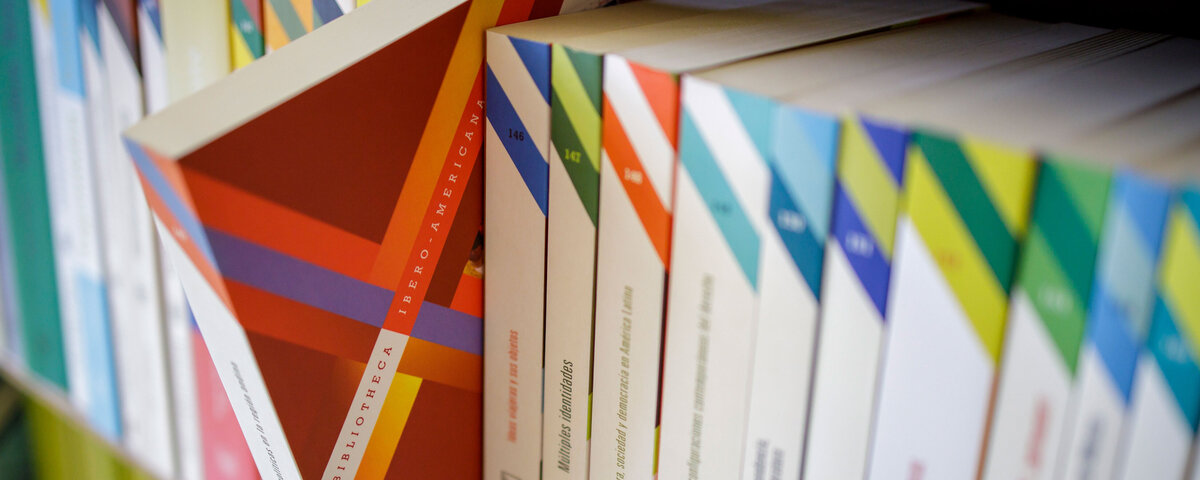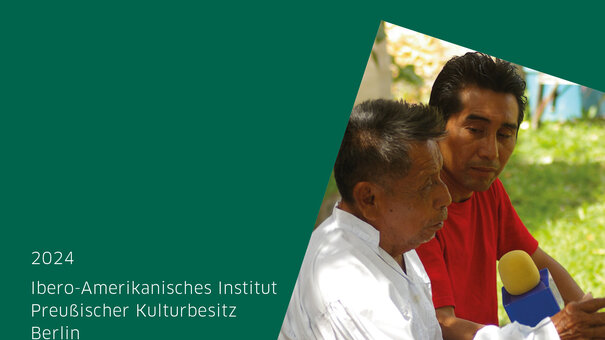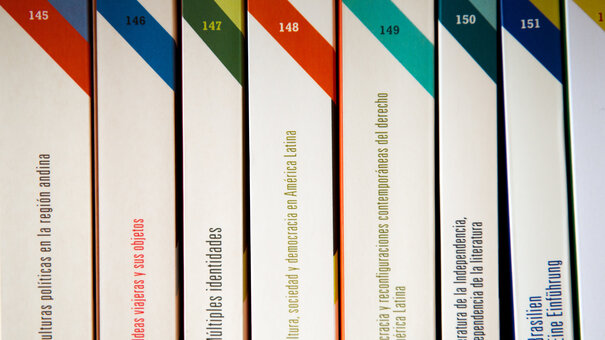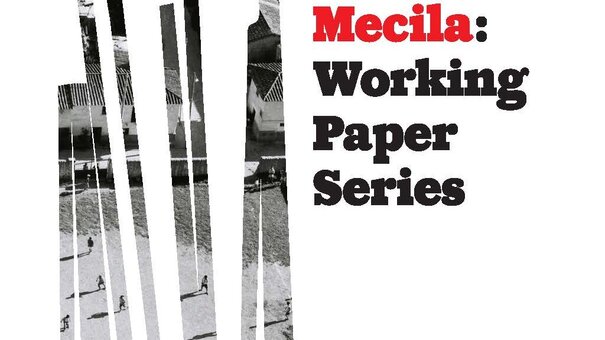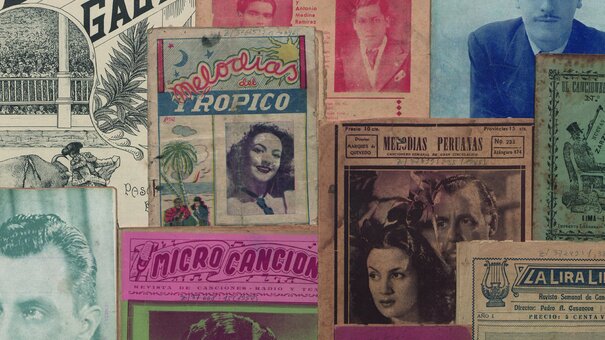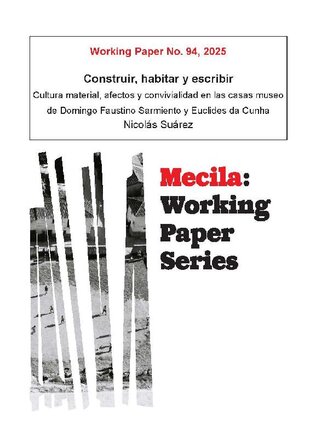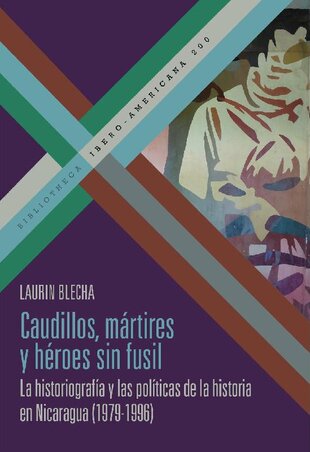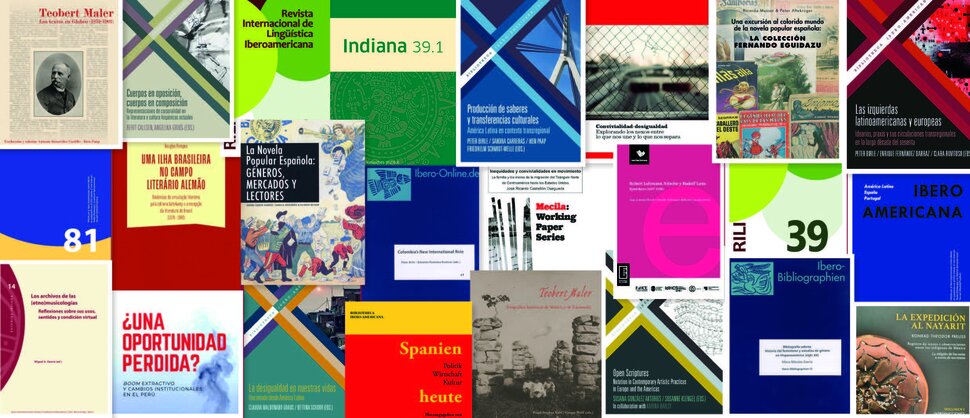Publications
The Ibero-Amerikanische Institut (IAI) offers a diverse publication program in German, Spanish, Portuguese, and English. This program is primarily driven by the Institute's research activities, scientific events held at the IAI, research stays by visiting scholars, and collaborations with national and international universities, research institutions, and cultural organizations. The program includes academic journals, book series, co-editions, exhibition catalogues, and the working papers series.
Our publication brochure (PDF, 4.18 MB) (opens in a new window), (this file is not accessible) provides information about new releases for 2022–2024 and all publications since the institute was founded.
Our publications
Publication program
Publication program
Our program follows an international, multidisciplinary, and multilingual approach. It adheres to internationally established quality assurance standards.
These include, for instance, double-blind peer review processes, internationally staffed editorial boards, regular evaluations, and the inclusion of IAI journals in major international indexes.
Convinced that diversity in knowledge production also includes linguistic diversity, the IAI deliberately avoids an "English-only" strategy.
Open Access
The IAI is committed to a Free and Open Access strategy whenever possible.
Through the IAI's Repository of Publications (external link, opens in a new window), we offer a significant portion of the books and journals published since the Institute's founding in 1930 for free download.
The journals "IBEROAMERICANA. América Latina - España - Portugal" (external link, opens in a new window) and "INDIANA. Anthropological Studies on Latin America and the Caribbean" (external link, opens in a new window) are published in Open Access concurrently with their print editions.
